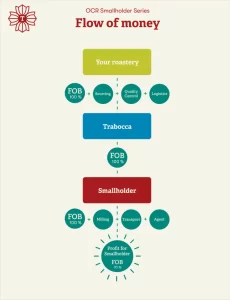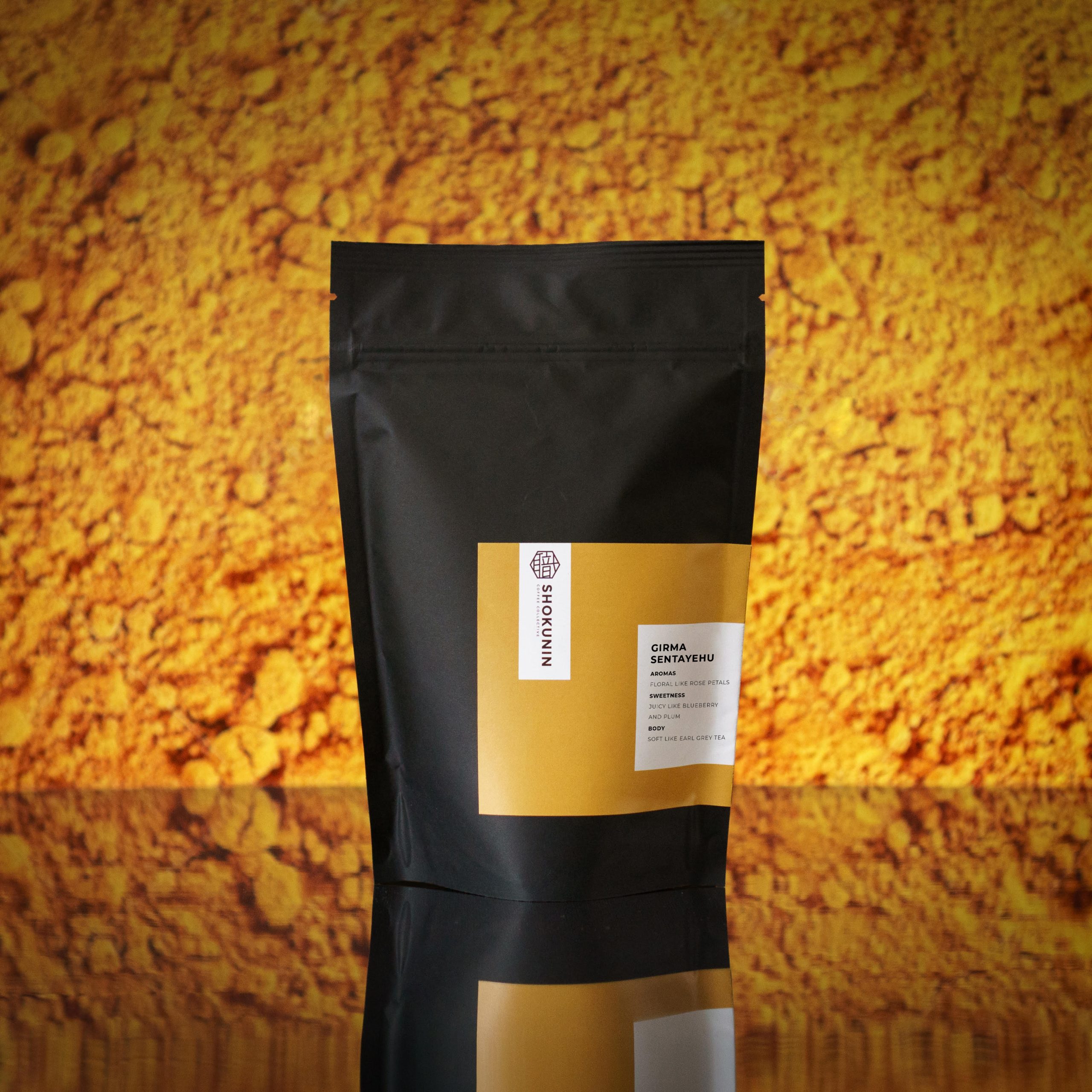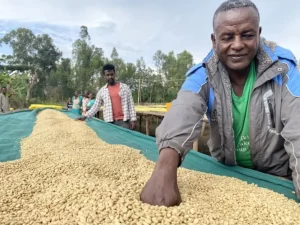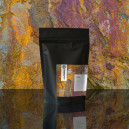Girma Sentayehu
Single producers like Girma Sintayehu are rare in Ethiopia, where coffee produced in cooperatives dominates the national output. This is the only washed lot provided in the Operation Cherry Red Smallholder Series (2025), traceable to a single producer and facilitated by Trabocca.
Region: Yirgacheffe, Ethiopia
Altitude: 1750 m.a.s.l.
Variety: Mixed Heirloom
Processing: fully washed
Additional information
| Weight | N/A |
|---|---|
| Region | Galeh, Jimma, Oromia, Ethiopia |
| Altitude | 1,840 – 2,130 m.a.s.l. |
| Variety | Local varieties 74165, 75227, 74140, 74110, 74112 and 5227 |
| Processing | Natural, dried on raised beds |
| Flavour | Full, sweet aromas like black tea and passion fruit. Deep sweetness like melon and strawberry jam. Smooth, creamy body like hazelnut ice cream |
Jelle's Notes
I’ve been wanting to add more Ethiopian coffees to the lineup for a while, and Trabocca felt like the right partner for this. I know them through their work with Ethiopian producers, which led me to Suke Quto, and I’ve always appreciated their initiatives; from the first biologically certified export coffees to their focus on traceability and quality.
For this coffee, their Operation Cherry Red programme gave me a unique chance to source coffee right at its roots. It connects smallholders in Ethiopia directly to roasters, skipping the cooperative model and maximum traceability. That means I get to work directly with the farmer, which is the type of relationship I value. This is the first result of that collaboration, and I’m excited to see what comes out of it.
Producer
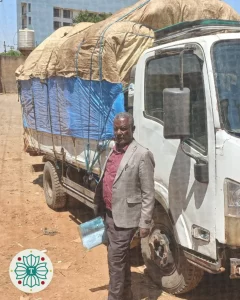 Girma Sentayehu is a second-generation coffee farmer who is part of Trabocca’s Operation Cherry Red (OCR) Smallholder program. He runs the farm with his wife and son in Biloya kebele, Kochere woreda, in the Yirgacheffe zone. His family has owned the land since 1970, but only got their export license in 2019. That was a turning point. Since then, he’s been working to build direct relationships with roasters and grow his role as a producer.
Girma Sentayehu is a second-generation coffee farmer who is part of Trabocca’s Operation Cherry Red (OCR) Smallholder program. He runs the farm with his wife and son in Biloya kebele, Kochere woreda, in the Yirgacheffe zone. His family has owned the land since 1970, but only got their export license in 2019. That was a turning point. Since then, he’s been working to build direct relationships with roasters and grow his role as a producer.
Girma’s family is also involved in transportation trade, but coffee remains the focus and is their primary means of improving their livelihood. Eleven people live and work in the household, and during the harvest season they hire additional seasonal workers to help pick cherries and manage drying.
The farm covers 6.46 hectares at 1,750 meters above sea level. It’s shaded by native trees and sits on red-brown loam soil. Girma is the only producer in the OCR Smallholder Series who contributes a washed lot for Trabocca. This is partially due to the location of the farm, right beside the Biloya River, which provides the fresh water used in its washed processing. After washing, the coffee is dried for 6 to 8 days and turned 4 to 6 times until it reaches the optimal moisture level.
This region gets hot, with midday temperatures regularly peaking above 30°C. To improve quality and consistency in drying, Girma is now investing in shade nets to slow down and better control the drying process. It’s a promising step for future lots.
Operation Cherry Red
Operation Cherry Red (OCR) is Trabocca’s initiative to build a more equitable coffee supply chain. It focuses on quality, sustainability, and traceability, making sure that premium payments reach the hands of the producers who deserve them.
Traditionally, Ethiopian smallholders sell cherries to local washing stations, where lots are blended and traceability is limited. OCR changes that. By helping farmers get export licenses and take charge of their own processing, milling, and shipping, Trabocca makes sure more of the final price ends up with the farmer. Instead of the usual 30 percent, they can now keep up to 70 percent of what the coffee sells for when it leaves Ethiopia.
The 2025 OCR Smallholder Series highlights unique coffees from individual producers like Girma. These lots are traceable, transparent, and impactful. For roasters, it’s a chance to source coffee at its roots and support long-term relationships that truly matter.
The program’s impact is already visible. Previous OCR auctions generated substantial premiums and helped producers improve their livelihoods.
